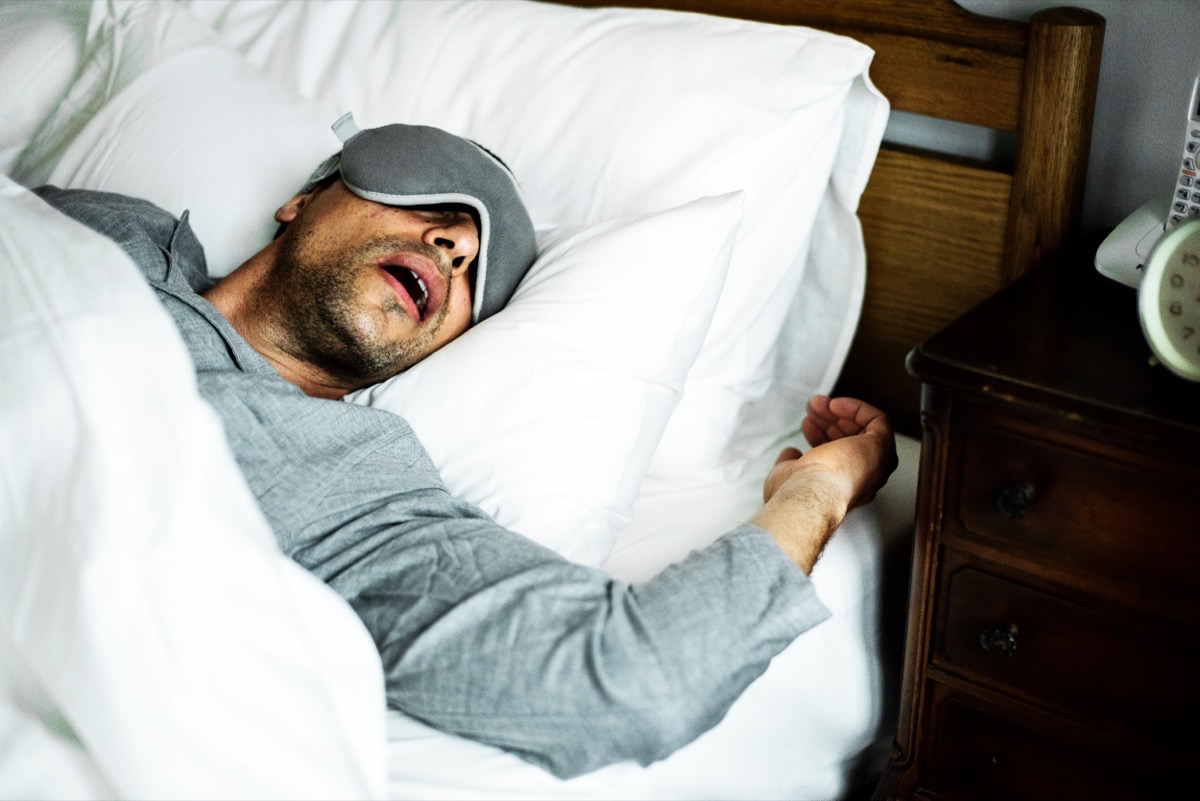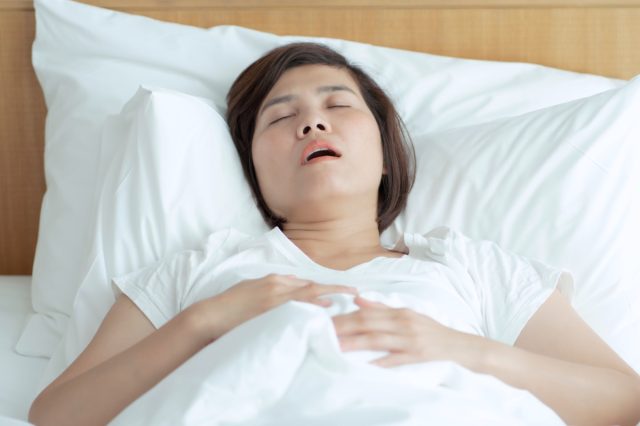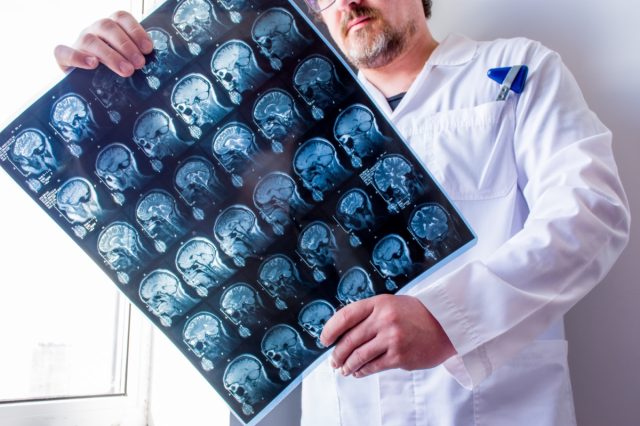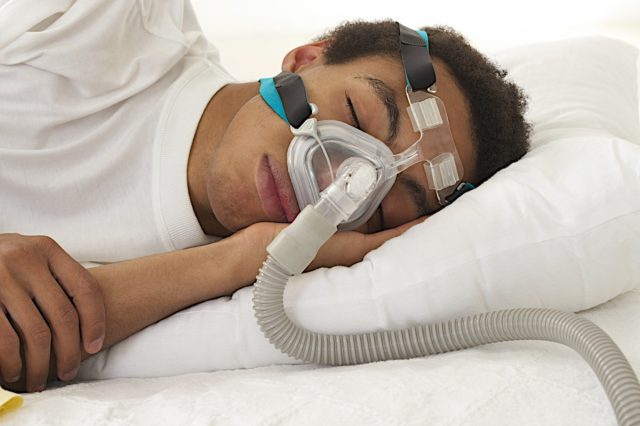Doing This When You Sleep Triples Your Stroke Risk, Science Says

Over 795,000 people in the U.S. have a stroke each year and the condition is responsible for one in six deaths related to cardiovascular disease, the American Heart Association reports. While getting enough exercise, eating a healthy diet, and controlling your blood pressure can all reduce your risk of having a stroke, there’s yet another factor that could be putting you at risk: your sleep.
Read on to discover how your sleep could be increasing your stroke risk. And for some simple ways to improve your wellbeing fast, check out The 7 Healthiest Foods to Eat Right Now.
How does sleep influence stroke risk?

A new study published in JAMA Network Open reveals that among a group of 529 adult participants in the Study of Health in Pomerania–Trend baseline, obstructive sleep apnea was significantly linked to the development of white matter hyperintensities (WMHs). Obstructive sleep apnea is characterized by an interruption in your breathing during sleep due to the relaxing of muscles in your throat.
White matter hyperintensities are lesions found in the brain that are associated with an increased likelihood of certain cardiovascular and cerebral conditions, especially in older adults.
RELATED: The #1 Cause of Stroke, According to Science
White matter hyperintensities can triple your stroke risk.

It’s scary enough to discover that your sleeping habits are causing changes in your brain, but that’s not the only concern for people with white matter hyperintensities due to obstructive sleep apnea.
According to a 2017 study published in Neurology, having white matter hyperintensities triples a person’s risk of having a stroke.
WMHs are also associated with cognitive decline.

The same Neurology study reveals that having WMHs doubles a person’s risk of dementia, as well as being associated with more general cognitive decline.
What’s more, a 2019 study published in the Journal of Alzheimer’s Disease found that individuals with Alzheimer’s disease were significantly more likely to have white matter hyperintensities near the ventricles on both sides of their brains than those without the degenerative form of dementia.
Certain people have a higher risk of developing obstructive sleep apnea..

Certain groups are more likely to develop sleep apnea than others. Being overweight or obese; having a large neck circumference; being male; being older; smoking; having nasal congestion or a narrowed airway; having a family history of obstructive sleep apnea; having conditions including high blood pressure, type 2 diabetes, and congestive heart failure; and using alcohol, tranquilizers, or sedatives can all increase your risk of sleep apnea, according to the Mayo Clinic.
RELATED: The Surprising Reason Why You Could Get a Stroke
There are ways to reduce your obstructive sleep apnea symptoms.

Certain lifestyle changes, like reducing your alcohol consumption, exercising more regularly, losing weight, reducing sedative use, taking decongestants, and using a CPAP machine can all help reduce obstructive sleep apnea symptoms.
Fortunately, in taking these measures, you may be able to help reverse some of the cognitive effects of obstructive sleep apnea. A 2014 study published in Sleep found that use of a CPAP over a 12-month period helped study subjects with obstructive sleep apnea almost completely reverse these changes to their brain’s white matter.
For more ways to lower your stroke risk, check out Never Do This or Risk a Stroke, Says New Study.
Read this next:








